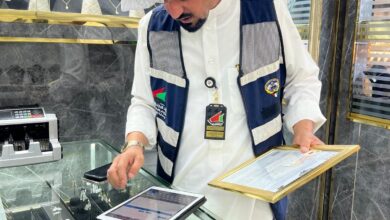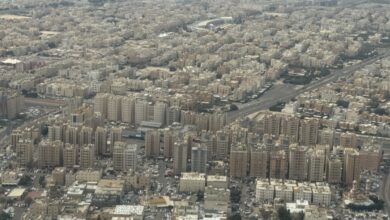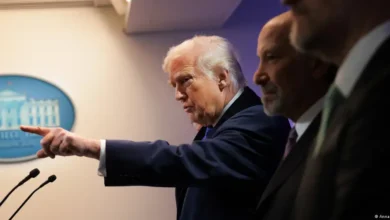
U.S. President Donald Trump said that “peace will come soon,” though he did not rule out potential U.S. involvement in the escalating conflict between Israel and Iran. His remarks came as Iran launched a fresh wave of ballistic missiles into Israeli territory.
As tensions on the ground escalated. Air raid sirens sounded in Jerusalem, and witnesses reported hearing explosions shortly afterward. The Israel Defense Forces (IDF) confirmed that Iran had launched missiles and urged civilians to follow emergency instructions.
U.S. officials revealed that President Trump had vetoed a proposed Israeli plan to assassinate Iran’s Supreme Leader, Ayatollah Ali Khamenei. Reuters first reported the story, citing two anonymous U.S. sources. One senior official told the agency: “Have the Iranians killed an American yet? No. Until they do, we’re not even discussing political leadership strikes.”
When asked about the report in a Fox News interview, Israeli Prime Minister Benjamin Netanyahu dismissed it, saying, “There are so many false reports of conversations that never happened. I won’t get into that.”
Turkish President Recep Tayyip Erdoğan welcomed Trump’s comments on de-escalation and offered to mediate between Israel and Iran. In a statement, Erdoğan’s office said he warned Trump during a phone call that urgent action was needed to prevent the conflict from engulfing the wider Middle East. Turkey also offered to help resolve the long-standing nuclear dispute.
Back in Israel, authorities arrested two Israeli citizens accused of working for Iranian intelligence. The individuals, both Jewish Israelis, were allegedly carrying out missions on behalf of Iran. “This is a grave danger,” police said, warning the public against engaging with foreign agents.
In the coastal city of Bat Yam, south of Tel Aviv, an Iranian missile struck a residential area. Although most incoming projectiles were intercepted, some evaded defenses and caused serious damage. One building had its side completely destroyed. Six people, including two children, were killed, and emergency services were still searching for three missing residents.
Tzachi Bublil, a local resident, told DW, “Everything here exploded. The building collapsed from the inside. But this doesn’t scare us—it strengthens us.” He reflected the broader national sentiment, saying, “This is existential. It’s either us or them.”
Nearby, Orianis Olyberos-Ortiz packed up her family’s belongings after being told their building was no longer safe. “We took shelter in our basement, and then this happened. I don’t know what to do,” she said. She added that many buildings in the area lack safe rooms or shelters.
Yoram Cohen, another resident, said he supported Israel’s strikes on Iran. “They’ve always said they want to destroy Israel. So we must hit them first,” he told DW. Bublil echoed that view, calling for more aggressive action: “We want to see mushroom clouds over Tehran. We want to see fire and light everywhere.”
Arab-Israeli lawmaker Ayman Odeh criticized the lack of public shelters in Arab-majority areas, citing Tamra—a city where four women were killed in Iranian strikes. Odeh accused the government of neglecting Arab communities, noting that around 60% of local authorities in these areas lack public shelters.
In response, Israel expanded its operations. The IDF confirmed it struck an Iranian refueling aircraft at Mashhad Airport, marking its longest-range attack so far in the conflict. Iranian media also reported strikes in Mashhad, home to the sacred Imam Reza shrine.
In an interview with ABC News, Trump again emphasized that the U.S. was not currently involved militarily but said, “It’s possible we could get involved.” He also mentioned being open to mediation efforts by Russian President Vladimir Putin, stating, “He’s ready. He called me. We had a long talk.”
Dw.com quoting Middle East analyst Sara Bazoobandi, the current hostilities are the culmination of decades of antagonism. “This is not something that happened overnight,” said Bazoobandi, a non-resident research fellow at the Institute for Security Policy at the University of Kiel.
Speaking to DW, she described the war as the result of nearly five decades of Iranian strategy and anti-Israel rhetoric following the 1979 Islamic Revolution.
“The Islamic Republic has consistently called for the destruction of the state of Israel,” she said, arguing that there is now a growing global and regional consensus that Iran is not behaving like a normal state. “Iran can only be contained through real confrontation,” she added.
She argued that while Israel may aim to destabilize or even remove the Iranian regime, this goal remains out of reach. “The government in Tehran is weakened—several senior commanders were killed in one night—but it is not near collapse,” she said.












